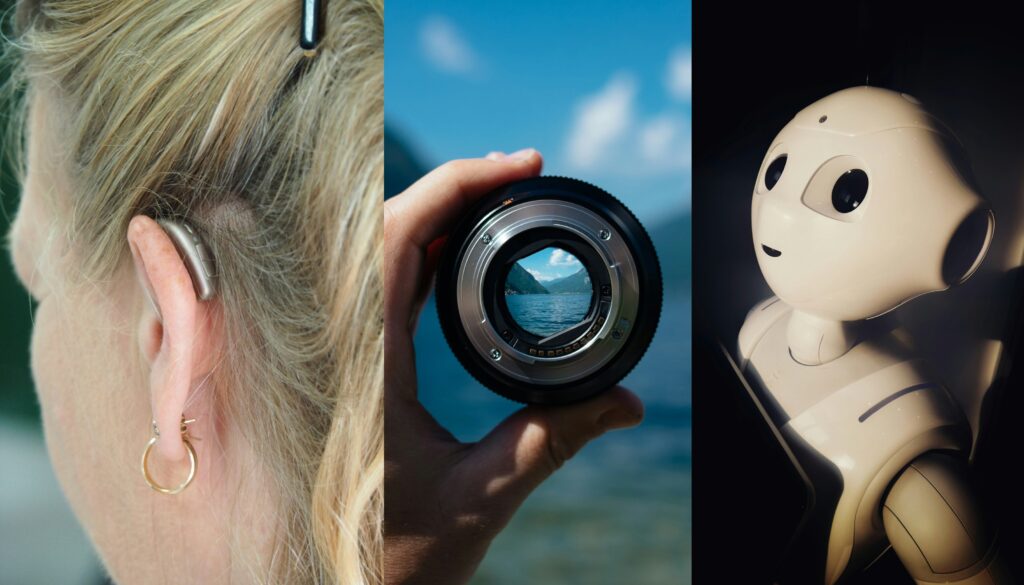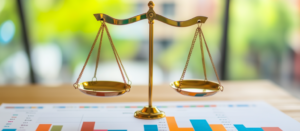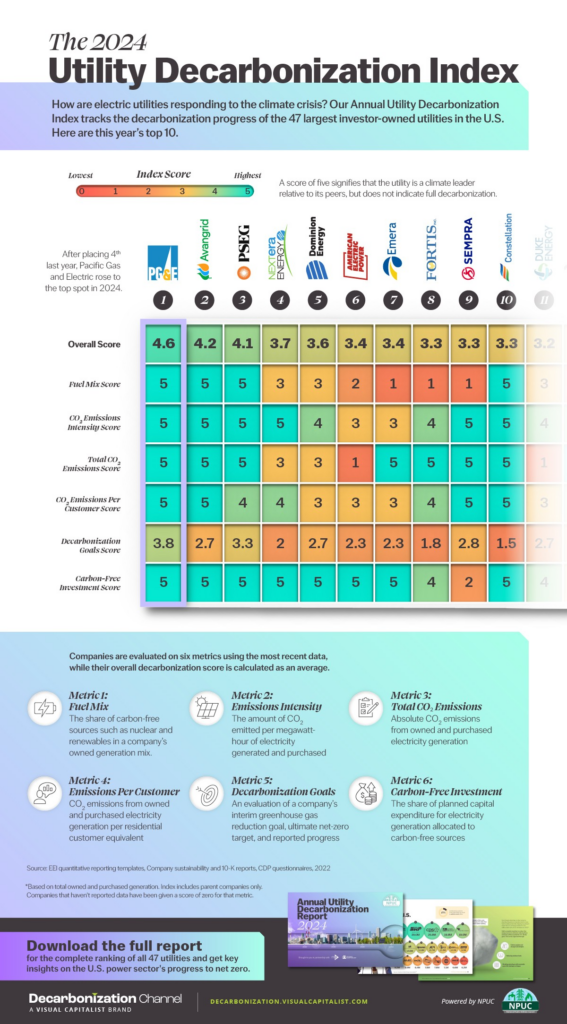How IP supports sustainable innovation 🎯 IP Management Pulse #23
Many IP experts in the IP community at I3PM, the HTB-EPO initiative, and other IP offices and institutions in national and regional innovation systems have asked Prof. Alexander Wurzer: “Where can you be sure not to miss any important IP management content?” In fact, you have to follow a number of interesting feeds to really keep up with the global developments around IP management. To make this easier he decided to offer his own personal newsletter for IP management. Here, you can find the last issues in the archive and also subscribe. A fresh read with all important IP Management content will be sent to the subscribers every second Thursday at 7:00 (CET), so you can start your day informed.
The next Newsletter will cover the following topics:
This year’s Nobel Prize in Economics (which is not a “real” Nobel Prize) goes to three academics, two of whom have summarized their work in a very influential book: “Why Nations Fail”. It is about the difference between “extractive” economic and social systems that are designed to exploit natural resources and that fail to improve the living conditions of their people. 𝐀𝐧𝐝 𝐬𝐨-𝐜𝐚𝐥𝐥𝐞𝐝 “𝐢𝐧𝐜𝐥𝐮𝐬𝐢𝐯𝐞” 𝐬𝐲𝐬𝐭𝐞𝐦𝐬 𝐭𝐡𝐚𝐭 𝐢𝐧𝐯𝐢𝐭𝐞 𝐞𝐯𝐞𝐫𝐲𝐨𝐧𝐞 𝐭𝐨 𝐩𝐚𝐫𝐭𝐢𝐜𝐢𝐩𝐚𝐭𝐞 𝐢𝐧 𝐢𝐧𝐯𝐞𝐧𝐭𝐢𝐨𝐧, 𝐢𝐧𝐧𝐨𝐯𝐚𝐭𝐢𝐨𝐧 𝐚𝐧𝐝 𝐭𝐡𝐞 𝐜𝐫𝐞𝐚𝐭𝐢𝐨𝐧 𝐨𝐟 𝐰𝐞𝐚𝐥𝐭𝐡. 𝐓𝐡𝐢𝐬 𝐢𝐧𝐜𝐥𝐮𝐝𝐞𝐬 𝐯𝐚𝐫𝐢𝐨𝐮𝐬 𝐢𝐧𝐬𝐭𝐢𝐭𝐮𝐭𝐢𝐨𝐧𝐬, 𝐢𝐧𝐜𝐥𝐮𝐝𝐢𝐧𝐠 𝐢𝐧𝐭𝐞𝐥𝐥𝐞𝐜𝐭𝐮𝐚𝐥 𝐩𝐫𝐨𝐩𝐞𝐫𝐭𝐲 𝐢𝐧 𝐩𝐚𝐫𝐭𝐢𝐜𝐮𝐥𝐚𝐫.
𝐅𝐫𝐚𝐧𝐜𝐞’𝐬 𝐀𝐈 𝐌𝐢𝐧𝐢𝐬𝐭𝐞𝐫: 𝐀 𝐆𝐚𝐦𝐞-𝐂𝐡𝐚𝐧𝐠𝐞𝐫 𝐟𝐨𝐫 𝐓𝐞𝐜𝐡 𝐈𝐧𝐧𝐨𝐯𝐚𝐭𝐢𝐨𝐧 𝐚𝐧𝐝 𝐈𝐏 𝐒𝐭𝐫𝐚𝐭𝐞𝐠𝐲 🧐
𝐇𝐨𝐰 𝐰𝐢𝐥𝐥 𝐀𝐈 𝐫𝐞𝐬𝐡𝐚𝐩𝐞 𝐲𝐨𝐮𝐫 𝐈𝐏 𝐬𝐭𝐫𝐚𝐭𝐞𝐠𝐲 𝐢𝐧 𝐭𝐡𝐞 𝐧𝐞𝐱𝐭 𝟏𝟐-𝟏𝟖 𝐦𝐨𝐧𝐭𝐡𝐬? 𝐖𝐡𝐚𝐭 𝐩𝐨𝐭𝐞𝐧𝐭𝐢𝐚𝐥 𝐫𝐢𝐬𝐤𝐬 𝐚𝐧𝐝 𝐨𝐩𝐩𝐨𝐫𝐭𝐮𝐧𝐢𝐭𝐢𝐞𝐬 𝐝𝐨 𝐲𝐨𝐮 𝐟𝐨𝐫𝐞𝐬𝐞𝐞 𝐢𝐧 𝐀𝐈-𝐝𝐫𝐢𝐯𝐞𝐧 𝐈𝐏 𝐦𝐚𝐧𝐚𝐠𝐞𝐦𝐞𝐧𝐭?
 Protection strategies for robotics
Protection strategies for robotics
𝐓𝐡𝐞 𝐫𝐨𝐛𝐨𝐭𝐢𝐜𝐬 𝐛𝐮𝐬𝐢𝐧𝐞𝐬𝐬 𝐨𝐧𝐥𝐲 𝐤𝐧𝐨𝐰𝐬 𝐨𝐧𝐞 𝐝𝐢𝐫𝐞𝐜𝐭𝐢𝐨𝐧: 𝐮𝐩𝐰𝐚𝐫𝐝𝐬, 𝐚𝐥𝐥 𝐢𝐧𝐝𝐢𝐜𝐚𝐭𝐨𝐫𝐬 𝐚𝐫𝐞 𝐫𝐢𝐬𝐢𝐧𝐠 – 𝐰𝐡𝐚𝐭 𝐚𝐛𝐨𝐮𝐭 𝐈𝐏?
The International Federation of Robotics reports that sales of service robots have increased by 30% worldwide to more than 205k units – 80% of which come from the Asia-Pacific region. A total of 4 million robots have now been installed worldwide – another record. 70% of all newly installed robots are used in Asia.
China has unveiled its first AI hospital town, where patients are treated by AI-generated doctors in a simulated environment. This groundbreaking development could revolutionize healthcare delivery and medical training while significantly impacting the intellectual property landscape.
As IP professionals, we often find ourselves laser-focused on the minutiae. But are 𝐰𝐞 𝐥𝐨𝐬𝐢𝐧𝐠 𝐬𝐢𝐠𝐡𝐭 𝐨𝐟 𝐭𝐡𝐞 𝐛𝐢𝐠𝐠𝐞𝐫 𝐩𝐢𝐜𝐭𝐮𝐫𝐞?
Remember, in the world of intellectual property, sometimes the most significant threats – and opportunities – lie beyond the scope of our immediate focus.
New 🔗dIPlex entry: IP Benchmarking
IP benchmarking is a process of evaluating a company’s intellectual property (IP) assets and strategies against those of its competitors or industry leaders. This analysis helps companies understand their own IP strengths and weaknesses, make informed strategic decisions, gain competitive intelligence, optimize costs, and maximize the value of their IP portfolio.
New 🔗dIPlex entry: Patent Portfolio Management
Effective patent portfolio management is an ongoing process that requires continuous adaptation and refinement. By embracing the best practices and staying ahead of industry trends, companies can position themselves for success in today’s competitive landscape.
Whom to follow
Enes Çetinkaya gives you an overview of IP trends in digital technologies on his LinkedIn feed. This includes in particular a patent and trade mark perspective on video games and other related software technologies. In doing so, he raises awareness of new application areas of intellectual property and supports the IP Business Academy as an ambassador.
In his LinkedIn feed, Rajiv Suri presents the latest developments in the field of intellectual property law in Dubai and the United Arab Emirates. This includes, for example, the enforcement of judgements, arbitration proceedings and how to secure IP rights in Dubai. He does this through long articles and podcasts. He also supports the IP Business Academy as an ambassador.
Synthetic data: An introduction with real-world impact
At its core, synthetic data is artificially generated information that mimics real-world data, allowing businesses and researchers to train machine learning models, run simulations, or conduct studies — without the need for sensitive or proprietary datasets. With advances in machine learning, synthetic data has become an essential tool for industries looking to innovate while addressing privacy concerns and legal regulations.
What does brand equity mean? – Case study: Apple
Brand equity is the additional benefit a consumer associates with a brand, which makes it unique compared to all the other brands available in the market. In other words, brand equity means the customer’s perception and loyalty to a brand and brand awareness, which measures the potential customers’ ability to recognize and associate a brand with a company’s product or service.
Decarbonization technologies
As awareness of the dangers of climate change increases, more and more companies are turning to green technologies, particularly in the area of decarbonization. This means that the role of patents in decarbonization is also increasing. Nevertheless, the contribution of these patents to decarbonization must be assessed so that economic decisions can be made including the management of the patent portfolio. For this purpose, for example, AI technologies can be used to assess the environmental impact of the technologies, as described in this article.
The right mix for an IP portfolio
An IP portfolio safeguards a company’s valuable ideas and creations. It includes patents for technical inventions, utility models, and provisional applications to secure a priority date. Design patents protect a product’s appearance, while copyrights protect software code and marketing materials. Trade marks safeguard brand names and logos, and trade secrets protect confidential know-how. A well-managed IP portfolio is a vital asset for any company.
Watch the full video lecture by Gil Perlberg below:












